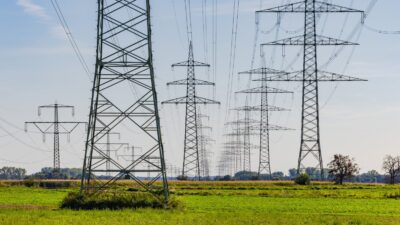The butcher, the baker and the economist: factual and expert witnesses in court cases
In competition and follow-on damages cases, courts often hear evidence from two types of witness: factual witnesses (usually from industry) and economic experts. What is the role of each, and how can courts deal with any differences between them? We offer some insight based on work by the founding father of economics, Adam Smith.
Factual and expert evidence should normally be complementary. Factual witnesses, who often represent one of the parties involved, can explain how a business functions in practice and how it makes (or made) certain business decisions—i.e. they provide a picture of commercial reality. Economics experts can provide a broader market perspective, setting out how the business’s actions and interactions result in certain market outcomes, and can often measure these effects quantitatively. Economists can also often shed light on the counterfactual (i.e. what would have occurred in the absence of the behaviour or agreement that is the focus of the claim)—for example, in damages and Article 101 cases—in contrast to factual witnesses, who shed light on the factual situation.
Nonetheless, factual and expert evidence can sometimes be at odds with each other, and the court has to decide how much weight to give to each. A recent example is BritNed v ABB (2018), which was a follow-on damages claim before the High Court in the UK against a participant in the high-voltage submarine and underground power cable cartel.1 The court considered how costs should be estimated for the purposes of the econometric analysis of the cartel overcharge. The claimant’s expert had used proxy variables for the costs of ABB on the basis that the company’s reported costs during the cartel period might not have been reflective of the competitive counterfactual costs. However, the court gave greater weight to the evidence of ABB’s factual witness, who argued that the reported cost data had not been affected.2
Theory versus commercial reality
Two older but instructive examples of cases where factual and expert evidence painted different pictures concerned horse racing media rights and rail services.
In RCA and BHB v OFT (2005), a case before the UK Competition Appeal Tribunal (CAT), a large group of British racecourses sold media rights collectively to a new venture for interactive TV and Internet betting on horse racing.3 The question arose as to whether this collective selling constituted a restriction of competition under Article 101(1); it would not do so if collective selling were objectively necessary for the launch of the new venture. The parties agreed that such a new venture required a ‘critical mass’ of horse racing content for a successful launch (in the end, the launch never actually happened).
However, the UK Office of Fair Trading (OFT) found an infringement because it considered that in a counterfactual without the agreement, the venture could have assembled a critical mass of rights by negotiating individually with each racecourse. The OFT reasoned that such separate contracts could have been made conditional on obtaining sufficient rights from other courses. The racecourses, in contrast, claimed that from a practical point of view, collective selling was the only realistic way to achieve a sale and purchase of the rights. These rights had never been sold before, and interactive betting was a new service at the time. The CAT agreed, dismissing the counterfactual put forward by the OFT:
The suggestion that the acquisition of the necessary critical mass by individual negotiation with up to 37 course owners either could have been done, might have been done, or was ever contemplated as something which could or might have been done, appears to us to represent a triumph of theory over commercial reality and to ignore the evidence of the events leading up to the [agreement].4
Another such ‘triumph of theory over commercial reality’ was encountered in Enron v EWS (2009), a damages case following an abuse of dominance finding by the UK Office of Rail Regulation (now the Office of Rail and Road).5 The question that arose was whether in the counterfactual—in the absence of the abuse—the claimant would have secured a major four-year contract to supply coal to a coal-fired power station (a ‘loss of chance’ claim). The economic expert for the claimant argued that the operator of the power station, as a rational economic decision-maker, would have been likely to select the claimant’s bid in the counterfactual.
However, neither the facts nor the executive at the power company who was responsible for the coal supply contract at the time supported this argument. The executive in question gave various business reasons why he would probably not have granted the contract to the claimant in any event. The CAT found that the executive gave his evidence ‘candidly and in a straightforward manner’, and was ‘impressed by his overall consistency on key points’.6 In the end, the CAT placed greater weight on this evidence from the actual decision-maker than on what the economics expert said a hypothetical rational decision-maker would have done.
Are economists guilty of ex post rationalisation?
Nonetheless, attempts by economic experts to ‘rationalise’ certain business behaviour should not be dismissed outright every time the business reality is slightly different from the theory. Take the example of Napp (2002), the very first judgment by the CAT in an appeal under the UK Competition Act 1998, which related to predatory and excessive pricing.7
In this example, the economists acting for the defendant were accused of ex post rationalisation of the company’s behaviour. In other words, they came up with a justification for the behaviour after the event. The CAT stated that the defendant’s justification for its behaviour did not flow from its internal documents, but from the work done by its economic advisers:8
Napp does not strike us as a naïve or badly managed company. If its pricing policy had in fact been set by Napp in the way that its economic consultants suggest, we would have expected the company’s internal documents to demonstrate that.
What can economists say to this in their defence? We have to go a long way back in time to find out. Economics emerged in the late eighteenth century. Commerce as we know it has existed for thousands of years. So it is almost inevitable that much of what economists have done is to provide explanations of business behaviour and market mechanisms that have existed for a long time.
Even ex post, however, economics can provide critical insights into the effects of business practices. The Napp case involved alleged predatory pricing in sustained-release morphine products (used in the treatment of cancer-related pain) in the hospital sector, combined with excessive pricing of the same product in the pharmacy (‘community’) sector. The economists presented the theory that Napp’s pricing policy incorporated a ‘follow-on effect’. This basically meant setting low prices in the hospital sector in order to enhance subsequent sales in the community sector. The economists described this effect in a narrow sense, in that more hospital sales would almost mechanistically lead to more community sales.
There was no factual evidence that this was actually how Napp set its prices. The CAT stated that the term ‘follow-on effect’ was not used in the industry, but rather was ‘coined by Napp’s advisers for the purposes of this case’.9 The managing director of Napp admitted that he had first come across the term when reading the papers for this case.
However, aside from the fact that it is not uncommon for pharmaceutical companies to set low prices to hospitals in order to gain more business in the community sector (even if it is not widely referred to as a ‘follow-on effect’), is it really the case that economic theories about how companies behave must always be reflected in internal company documents?
Back to the origins of economics
Consider the insight first provided by Adam Smith in 1776. In The Wealth of Nations he explained that it is actually a good thing if all economic agents pursue their own self-interest, because it ensures that the right business decisions and opportunities are taken in the economy as a whole. This is the famous ‘invisible hand’ mechanism, through which markets are understood to work efficiently and make us all better off:10
It is not from the benevolence of the butcher, the brewer, or the baker that we expect our dinner, but from their regard to their own interest. We address ourselves, not to their humanity but to their self-love […]. He generally, indeed, neither intends to promote the public interest, nor knows how much he is promoting it […]. And by directing that industry in such a manner as its produce may be of the greatest value, he intends only his own gain, and he is in this, as in many other cases, led by an invisible hand to promote an end which was no part of his intention. Nor is it always the worse for the society that it was no part of it. By pursuing his own interest he frequently promotes that of society more effectually than when he really intends to promote it.
This eighteenth-century insight still underpins the way economists think about markets today. Applying it to Napp, it is to some extent irrelevant whether internal business documents confirm Smith’s theory. The fact that business executives are unaware of the economic theory according to which they behave does not mean that the theory should be dismissed. Companies involved in competition proceedings are like the butcher and the baker, seeking their own self-interest (profits)—and economists do have things to say about the effects of such behaviour.
Pass it on
The question of factual and expert witnesses also arises in the context of the passing-on defence in cartel damages cases before national courts—i.e. has the claimant passed on the cartel overcharge to its own downstream customers? As reflected in the European Commission’s 2018 draft guidelines on this question, economics has a lot to say about pass-on, both conceptually (pass-on depends to an important degree on the nature of competition in the downstream market) and empirically (the pass-on rate can potentially be estimated from the data).11
Factual witnesses play a useful role in explaining how they actually set downstream prices in practice—what factors do they take into account? How often do they reset prices? How do they account for costs and revenues? The Commission’s draft guidelines also recognise the importance of such qualitative evidence. Ideally, the factual and economic evidence would align.
However, factual evidence alone cannot provide the full story. A classic example is where the producer in question—say, the butcher or the baker in the Adam Smith quote—feel that they are in a highly competitive market where they can never pass on any cost increases. Yet the economist would point to standard (and empirically verified)12 theory: if all butchers or all bakers operate in a fully competitive market and face the same cost increase (e.g. a cartel overcharge), this cost will ultimately be passed on in full to the overall prices of meat or bread.
Conclusion: factuals and counterfactuals
Economic experts and factual witnesses complement each other. Factual witnesses alone cannot provide the full picture that a court needs when judging the effects of certain practices on market outcomes. The eighteenth-century butcher and baker may give useful insight into how and why they make their business decisions, but it takes an economist to provide the broader market context for how the butcher competes with other butchers, and how the baker’s conduct affects market prices, outputs, quality and innovation.
Nevertheless, economic experts must ensure that their theories and empirical evidence contain a good dose of realism and are aligned with the facts of the case. The counterfactuals must be consistent with the factual. The rejection by courts of triumphs of theory over commercial reality is not without foundation.
1 BritNed Development Limited v ABB [2018] EWHC 2616 (Ch), 9 October. Oxera acted as experts for the claimant in this case.
2 Ibid., para. 414.
3 The Racecourse Association and the British Horseracing Board v Office of Fair Trading [2005] CAT 29, 2 August.
4 Ibid., para. 170.
5 Enron Coal Services Limited (in liquidation) v English Welsh & Scottish Railway Limited [2009] CAT 36, 21 December.
6 Ibid., para. 70(a).
7 Napp Pharmaceutical Holdings Limited and Subsidiaries v Director General of Fair Trading [2002] CAT 1, 15 January.
8 Ibid., para. 252.
9 Ibid., at paras 235–236.
10 Smith, A. (1776), An Inquiry into the Nature and Causes of the Wealth of Nations, Book I, Ch II. The story of the butcher and baker was also told in 2006 in a previous Agenda article: Oxera (2006), ‘The economist in court: guilty of ex post rationalisation?’, Agenda, June.
11 European Commission (2018), ‘Draft guidelines for national courts on how to estimate the share of cartel overcharges passed on to indirect purchasers and final consumers’, Consultation, 4 October. See also Oxera (2018), ‘Pass it on: the draft EU guidelines on pass-on and volume effects’, Agenda, October.
12 Oxera and a multi-jurisdictional team of lawyers led by Dr Assimakis Komninos (2009), ‘Quantifying antitrust damages: towards non-binding guidance for courts’, study prepared for the European Commission Directorate General for Competition, December, section 4.4.
Download
Related

Ofgem’s RIIO-3 Sector Specific Methodology Decision
On 18 July 2024, Ofgem published its Sector Specific Methodology Decision (SSMD) for the forthcoming RIIO-3 price control period for electricity transmission (ET), gas transmission (GT) and gas distribution (GD) networks.1 This follows Ofgem’s consultation on the matter in December 2023.2 RIIO-3 will last for… Read More

The future funding of the England & Wales water sector: Ofwat’s draft determinations
On Thursday 11 July, Ofwat (the England and Wales water regulator) published its much anticipated Draft Determinations (DDs). As part of the PR24 price review, this sets out its provisional assessment of allowed revenues and performance targets for AMP8 (2025–30)—and will be of great interest to water companies, investors,… Read More

